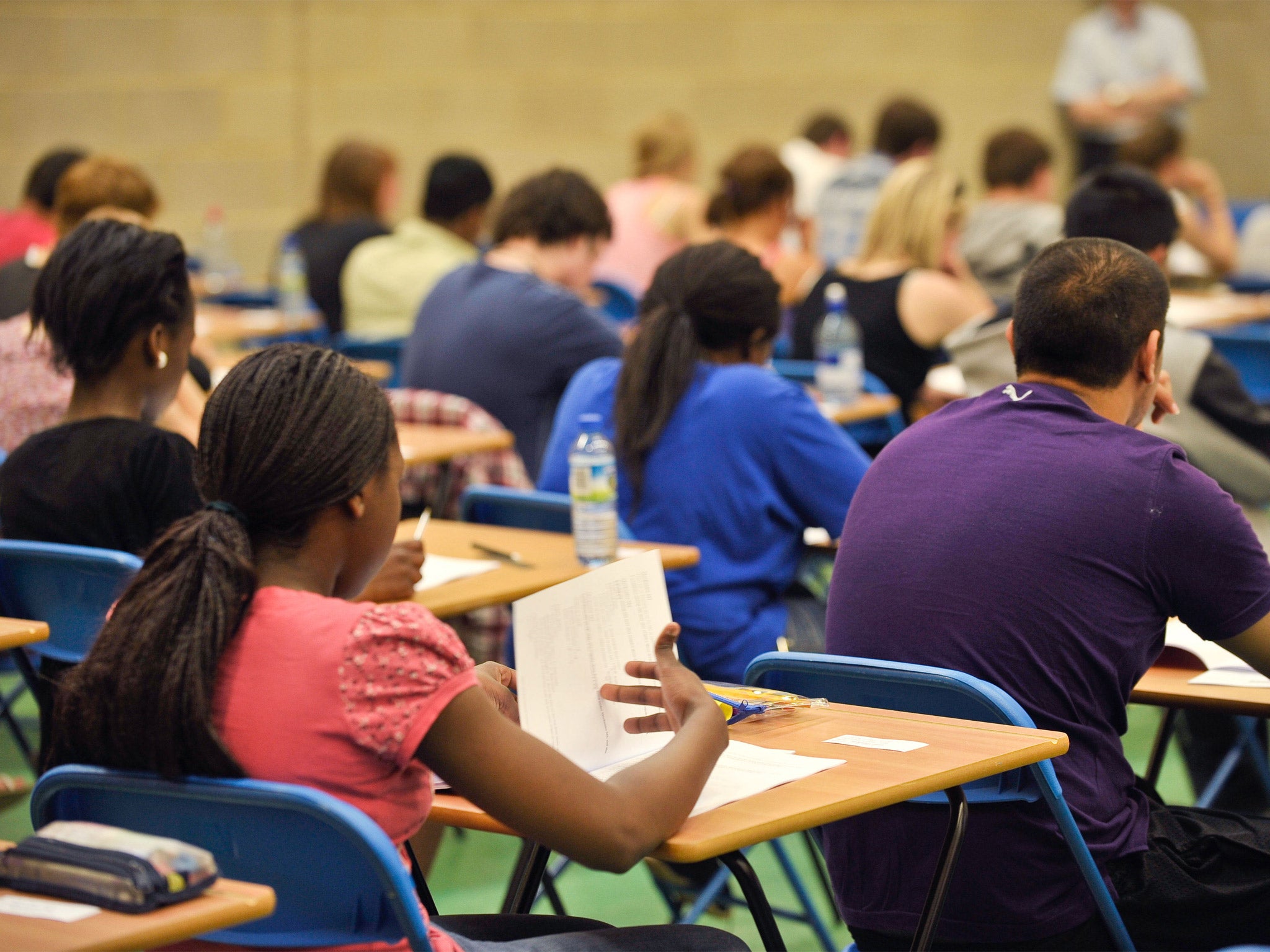Cultural vouchers will help poorer A-level students keep up, says study
Study claims this could help poorer pupils get into top unis

Your support helps us to tell the story
From reproductive rights to climate change to Big Tech, The Independent is on the ground when the story is developing. Whether it's investigating the financials of Elon Musk's pro-Trump PAC or producing our latest documentary, 'The A Word', which shines a light on the American women fighting for reproductive rights, we know how important it is to parse out the facts from the messaging.
At such a critical moment in US history, we need reporters on the ground. Your donation allows us to keep sending journalists to speak to both sides of the story.
The Independent is trusted by Americans across the entire political spectrum. And unlike many other quality news outlets, we choose not to lock Americans out of our reporting and analysis with paywalls. We believe quality journalism should be available to everyone, paid for by those who can afford it.
Your support makes all the difference.Bright children from poor homes should be given “enrichment vouchers” to encourage them to go on school trips and read for pleasure, says a new report.
The study, by researchers from Oxford University, argues that this is the best way to give them an equal chance to pupils from better-off homes of getting to a top university.
“Their chances of gaining good A-level results are significantly improved when they experience academic enrichment activities at home from the age of 11 – including going on trips to museums and galleries and reading for pleasure,” the study says. “When they get into the habit of daily homework, students are nine times as likely to get three A-levels.”

The research, commissioned by the Sutton Trust – the education charity which campaigns for all pupils to be given an equal start in life – adds that only one in three bright pupils from poor homes goes on to take A-levels in one or more of the so-called “facilitating” subjects – such as science, maths, languages and English – which can smooth their passage into a top university. This compares with 58 per cent of pupils from better-off homes.
The study suggests the “enrichment vouchers” could come from the Government’s pupil premium programme which gives schools extra cash for every disadvantaged pupil they take in.
“The fact that bright disadvantaged students fall so far behind when they reach their A-levels shows that government and schools urgently need to do more to support able students from less advantaged homes,” said Sir Peter Lampl, chairman of the Sutton Trust.
Professor Pam Sammons, co-author of the report, added: “There is no silver bullet that can make a difference but a combination of good schools and pre-schools, the right home-learning environment... can all ensure that bright but disadvantaged students get the chance of a good university education.”
The study, Subject to Background, tracked 3,000 young people from disadvantaged homes through their schooling from the age of three.
Earlier research has shown that there are around 3,000 students every year with the grades to go to the best dozen or so universities who do not end up there.
Ministers say they have seen a rise in the number of pupils taking facilitating subjects at A-level since the Coalition Government introduced the English Baccalaureate at GCSE level.
Join our commenting forum
Join thought-provoking conversations, follow other Independent readers and see their replies
Comments